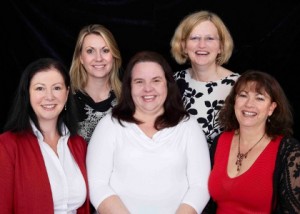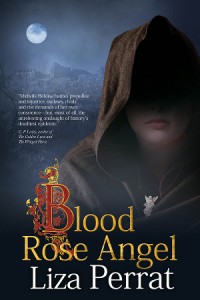Today, I’m delighted to welcome Liza Perrat to Virtual Book Club, an interview series in which I put questions to authors about their latest releases. If you would like to pose a question, you’ll have the opportunity to do so at the end, or she is willing to Skype into book clubs.
Liza grew up in Wollongong, Australia, where she worked as a general nurse and midwife for fifteen years.
When she met her French husband on a Bangkok bus, she moved to France, where she has been living with her husband and three children for twenty years. She works part-time as a French-English medical translator, and as a novelist.
Since completing a creative writing course twelve years ago, several of her short stories have won awards, notably the Writers Bureau annual competition of 2004 and her stories have been published widely in anthologies and small press magazines. Her articles on French culture and tradition have been published in international magazines such as France Magazine, France Today and The Good Life France.
Spirit of Lost Angels is the first in her French historical trilogy, The Bone Angel Series. The second – Wolfsangel – was published in October, 2013, and now, Blood Rose Angel (The Bone Angel Series Book 3) (which I was privileged to be asked to beta read), was published in November, 2015.
She is a founding member of the author collective, Triskele Books and reviews books for BookMuse.

Triskele Books (Liza is pictured far right)
Q: The Bone Angel novels are all linked by place and a single object – a pendant, which the reader is left to assume has been handed down through a family, giving the idea that the women in the series are also linked. This seems to have left you with the freedom to go backwards and forwards through history. How do you choose which eras to explore?
A: As an Australian living in France, I’m very interested in French history, and I knew I wanted to set the novels against dramatic historical events. The idea for the first story, Spirit of Lost Angels, came to me on a Sunday walk around the rural village in which I live. On the riverbank, I came across a small stone cross (croix à gros ventre, or cross with the big belly) commemorating the drowning of two peasant children in the 18th century. Intrigued, I wanted to know more about them; to give them names, a family, a village. The children had died in the years leading up to the French Revolution, so that seemed the most obvious setting: the peasants versus the aristocracy–on the small scale of my story, paralleled with the larger, real-life scale.

For the second in the series, Wolfsangel, a visit to the town of Oradour-sur-Glane, and learning of the tragic WW2 crime that occurred there, inspired me to set that book during the Nazi occupation of the same village, featuring the descendants of the same family.
By the time I got to book 3, Blood Rose Angel, I’d become interested in the 14th Century.
Q: What is it that particularly fascinates you about the medieval era?
A: The 14th century was a time of turmoil, great social and cultural upheaval, loss of confidence in institutions and feelings of helplessness at forces beyond our control. Historian Barbara Tuchman entitled her 14th century book A Distant Mirror because many of our current problems had counterparts in medieval times, e.g. fear of the end of the world is something we discuss in debates about nuclear war. It was a calamitous century, with two important natural disasters: the Little Ice Age, which led to crop failure, then famine. And the first outbreak of the Black Death, which seemed an obvious dramatic setting for this story.
Q: Does your family have an heirloom? If not, can you tell me about something you have inherited and what it means to you (imagined or real)?
A: Unfortunately my family aren’t ones for keeping things and there are no heirlooms. The only thing I have inherited is my grandmother’s wedding ring from her first marriage. Her husband (my grandfather) died young and consequently my grandmother and my parents moved to Australia. I sometimes wonder what my life would have been had I grown up British, in the UK, or in South Africa (where my parents were living before Australia). Happy to be an Aussie girl though!
Q: I’m interested in the idea that we are only here for a brief period of time, while the landscape is the constant. How did you choose your location?
A: Location is vital in my books, as “Time and Place” is the logo of my Author Collective, Triskele Books. For The Bone Angel series, I featured a French village and rural landscape, as that’s where I live, so it made it easier to write about. I feel more comfortable in the countryside and I doubt I could ever live in or write about a big city as I don’t feel at ease there.
Q: In Blood Rose Angel, you mention a Roman presence in the area. Is this an era that you intend to explore further?
A: The Romans certainly did have a presence in the Lyonnais region. Called Lugdunum then, it was founded in 43BC, and remained a very important city in Gaul for 300 years. Ruins of aqueducts constructed to transport water from the hills where I live, down to Lyon, still remain. A truly interesting era, but not one I intend to explore or write about for now.
Q: Your main character, Héloïse, is a midwife. How much did your own background as a midwife inform the her characteristics, given that you were practising this branch of medicine 700 years apart.
A: It helped a lot, actually. Modern-day midwifery might be very different from the 14th century in terms of the scientific and medical progress we’ve made, but I think that essentially it remains the same. Babies are still born the same way, women still face fear and pain, and it’s still the midwife’s job to alleviate that as much as possible, as it was during medieval times. So, apart from a bit of superstition with charms and potions, Héloïse would have acted much the same as a modern-day midwife, for a normal, uncomplicated birth. As for procuring solid information on midwifery practices in those times, that wasn’t so easy. Not much was documented about childbirth, since men weren’t allowed into birthing rooms, and most women could not write. However, I did come across a few old texts like the Trotula, which were helpful.

Click here to Look Inside or Buy
Q: You’re obviously passionate about your subject-matter. To what extent does self-publishing give writers greater freedom when it comes to what they write?
A: As a self-published author, I feel I have the freedom to write just the story I want, without worrying about genre or fitting into any commercial boxes. After two books though, I did take into consideration reader feedback, about what they like and want, in a story, for the third in the trilogy.
Q: The key trick in writing historical fiction is transporting readers to another time and place without overloading them with historical information. So how much detail is too much?
A: I think people basically want a solid, entertaining story populated with characters they can identify with. Of course, to transport readers to that other time and place, you need a minimum of description, language and setting. I have a tendency to overdo the historical information, which my Beta readers are constantly scratching out with the red pen. I have to keep asking myself: does the reader really need to know this?
Q: One of the interesting things about writing historical fiction is that the reader has the benefit of hindsight, while the characters in the book do not. How do you use this to your advantage?
A: The characters in Blood Rose Angel experience the first outbreak of what we know now as bubonic plague. Armed with our knowledge of how the plague is spread and how contagious it is, the reader can anticipate, with dread, what’s coming in the story; what the dangers are, whereas the characters are completely oblivious at first. I used this to mention things like the presence of rats and fleas, which would have no meaning for the characters, but terrible foreboding for the reader.
Q: Verbal anachronisms have been spotted recently in Downton Abbey and in Ripper Street. There is always a difficulty of striking a balance between getting the ‘feel’ of the language of the era right and borrowing directly from the language of the day. How do you go about this?
A: Yes, this was a big worry for me, and any words I suspected as being anachronistic, I researched their date of origin. I imagine a few slipped through though. On the topic of language, in the 14th century in the region west of Lyon, where Blood Rose Angel is set, French as we know it today wasn’t spoken, it was Franco-Provençal. But if I used that I think readers would have been completely lost, so I stuck to a few regular French words.
Q: Liza, you’ve very kindly provided a copy of Blood Rose Angel to giveaway. How is it going to work?
It’s very low tech. I’m going to take the names of anyone who comments to this interview, put them in my red beret and pull one out.
Want to find out more?
Sign up to Liza’s email newsletter and receive a FREE short story, Ill-fated Rose, that inspired The Bone Angel series.
Visit Liza’s website or blog , like her Facebook page , Follow her on Twitter @LizaPerrat or explore her Pinterest boards.
Remember, if you enjoyed this post please share it. If there’s anything else you’d like to ask Liza, leave a comment.
To have future posts delivered directly to your in-box, visit the sidebar on the right and subscribe to my blog, or to find out about new releases, competitions and freebies, subscribe to my newsletter and grab your free copy of my novel, I Stopped Time.
And if you’re an author and would like to appear on Virtual Book Club, please fill in a contact form.


